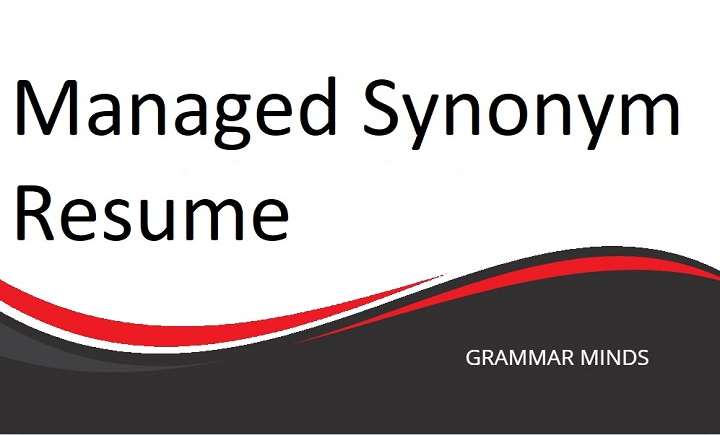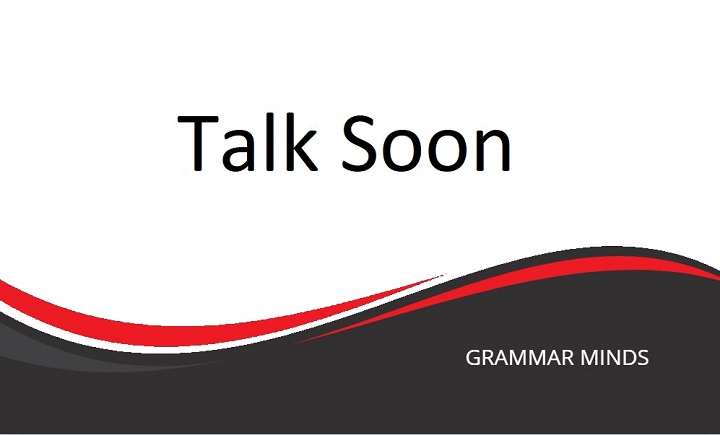In today’s highly competitive job market, crafting a compelling resume is essential. One key aspect of this process is word choice, especially when describing your skills, experiences, and accomplishments. A well-crafted resume can help you stand out, but relying on the same repetitive phrases may make your resume blend in with the crowd. That’s where managed synonym resume strategies come into play.
Do you find yourself using the phrase “managed” over and over again on your resume? Have you grown tired of this repetitive expression when showcasing your leadership or management skills?
Don’t worry! We’ve compiled a handy list of alternative phrases that you can use to mix things up, diversify your resume language, and give your resume a polished, professional look. Let’s explore how to enhance your resume by swapping out “managed” for a range of engaging alternatives.
Other Ways to Say “Managed”
Whether you’re applying for a leadership role or simply want to highlight your organizational skills, there are many other ways to say “managed” that can better reflect the nuances of your experience. Here are 10 strong alternatives to consider:
- Led
- Supervised
- Directed
- Oversaw
- Coordinated
- Executed
- Administered
- Facilitated
- Organized
- Operated
By integrating these phrases into your resume, you not only avoid repetition but also tailor the language to different contexts, giving you a more dynamic and versatile resume.
Key Notes on Using “Managed” and Its Synonyms
“Managed” is grammatically correct and suitable for both formal and professional situations. However, it can sometimes feel a bit overused or basic, especially in competitive job markets. Using a variety of synonyms adds depth to your resume and helps showcase the diverse responsibilities you’ve handled.
- You can use “Led” in formal situations, especially when highlighting leadership or high-level responsibilities in emails or during interviews.
- “Supervised” is a great formal alternative to “managed,” especially when referring to overseeing teams or projects.
- “Directed” can be an effective phrase for more specific contexts where you were in charge of initiatives or operations.
Let’s explore each of these alternatives in detail, along with examples of how to use them effectively in both formal and informal contexts.
Led
Usage:
If you’re looking for a more direct and confident way to say “managed,” try using “led.” This alternative adds a touch of leadership-focused language, making it ideal for describing moments when you were at the helm of a project or team. It’s especially powerful when you want to convey strong leadership qualities in a formal setting.
Example (in an email):
Dear Sarah,
Thank you for your assistance with the XYZ project. I appreciate your efforts and look forward to seeing the results.
I successfully led the marketing team to exceed our quarterly targets.
Best regards,
John Smith
Supervised
Usage:
“Supervised” is a more precise way to describe your management experience, especially in formal situations. This phrase works well when highlighting your ability to oversee teams, departments, or projects. It’s perfect for resumes that emphasize your role in guiding others to achieve their goals.
Example (in a resume bullet point):
- Supervised a team of 10 customer service representatives, improving client satisfaction by 20%.
Directed
Usage:
For roles where you took charge of major operations or initiatives, “directed” can convey that you were responsible for leading specific tasks or projects. This phrase is well-suited for formal environments and helps to underscore your authority and strategic approach.
Example (in an email):
Dear Team,
I wanted to inform you that I successfully directed the product development initiative, ensuring its timely completion.
Best regards,
Jennifer Lee
Oversaw
Usage:
“Oversaw” is another solid alternative to “managed” when you were responsible for monitoring progress and making decisions. This phrase is great for showcasing your ability to stay on top of multiple tasks or projects.
Example (in a resume bullet point):
- Oversaw daily operations of a $5M department budget, ensuring financial efficiency and reporting accuracy.
Coordinated
Usage:
If you played a pivotal role in organizing various components of a project, “coordinated” is a great alternative. This word highlights your ability to bring different elements together, making it ideal for job descriptions that involve teamwork and logistical planning.
Example (in a resume bullet point):
- Coordinated cross-departmental efforts to launch a new product, resulting in a 15% increase in sales.
Executed
Usage:
When you want to emphasize your hands-on role in carrying out plans or projects, “executed” can be a strong replacement for “managed.” It underscores your ability to deliver results and can be particularly effective for highlighting achievements in both formal and informal contexts.
Example (in a resume bullet point):
- Executed a strategic marketing campaign that increased brand awareness by 25%.
Administered
Usage:
“Administered” is a formal, professional way to describe how you managed tasks or operations, especially in contexts related to healthcare, education, or administrative roles. It suggests a sense of responsibility for processes or systems.
Example (in a resume bullet point):
- Administered payroll for over 500 employees, ensuring timely and accurate payments.
Facilitated
Usage:
“Facilitated” emphasizes your role in making processes run smoothly. This word works well in both formal and informal settings, especially when your contribution involved enabling communication or cooperation among teams.
Example (in a resume bullet point):
- Facilitated workshops and training sessions to improve team performance.
Organized
Usage:
For instances where your management experience involved logistical planning or event coordination, “organized” is a fitting choice. It conveys your ability to structure and arrange tasks efficiently.
Example (in a resume bullet point):
- Organized a company-wide seminar attended by over 200 participants.
Operated
Usage:
If your management experience involved running a system or process, “operated” can serve as an excellent alternative. It works particularly well when describing technical roles where you were responsible for handling machinery, systems, or specific operations.
Example (in a resume bullet point):
- Operated a complex CRM system to streamline client communications and track sales data.
Is It Correct to Say “Managed”?
Yes! “Managed” is grammatically correct and suitable for both formal and informal settings. It’s a versatile phrase that can be used in professional emails, conversations with colleagues, or casual chats with friends. However, using synonyms like the ones listed above will help you diversify your vocabulary and present yourself more dynamically.
To further enhance your resume, consider slight variations of this phrase, such as:
- Handled
- Superintended
- Oversaw and directed
Also Read
What to Say Instead of “Family Emergency”
In conclusion, “managed” is a perfectly acceptable and grammatically correct phrase that works well in both formal and informal contexts. However, the alternative phrases provided in this article will help you diversify your resume and stand out in today’s competitive job market. By switching up your word choice, you can communicate your skills more effectively, demonstrating a broader range of experiences and leadership capabilities.
With these tips, you’ll have a stronger, more polished resume that gets noticed by recruiters and hiring managers alike!







